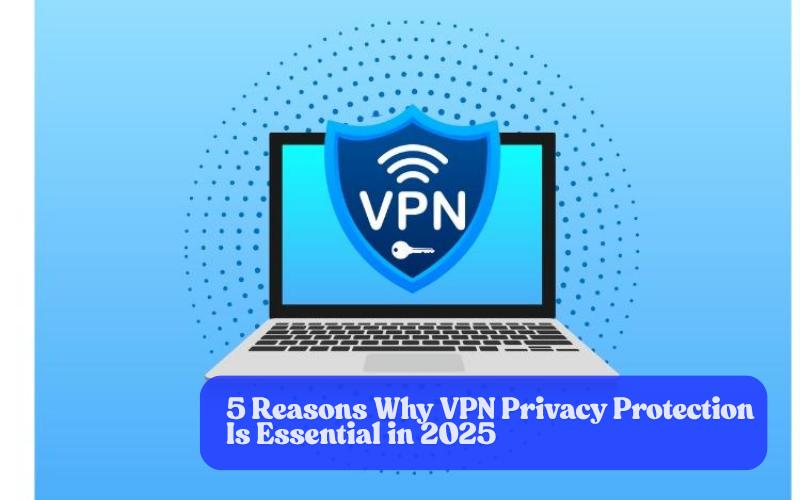Introduction
Today, protecting personal data is more crucial than ever. As cyber threats and online tracking grow, many users turn to VPN privacy protection to stay secure and anonymous.
What is VPN Privacy Protection?
A Virtual Private Network (VPN) enhances security by encrypting internet traffic and masking the user’s IP address. This prevents hackers, ISPs, and surveillance agencies from accessing private data. Effective VPN privacy protection ensures users can browse freely without fear of being monitored.

Why VPN Privacy Protection Matters
First, it shields browsing activity from ISPs, who might otherwise sell data to advertisers.
Second, it protects users on public Wi-Fi networks, where cybercriminals often intercept sensitive information.
Third, it enables free access to content by bypassing censorship and geo-restrictions.
In every situation, acts as a strong defense layer, reducing exposure to cyber risks.
Real-Life Applications
During the 2019 Hong Kong protests, activists used VPNs to avoid government surveillance. Similarly, journalists working under restrictive regimes depend on VPNs to maintain secure communication channels. These examples highlight how is essential for preserving digital freedom.

Choosing the Right VPN
Selecting a trusted VPN provider is vital. Look for services that:
-
Follow a strict no-logs policy
-
Offer strong encryption (e.g., AES-256)
-
Use secure protocols like OpenVPN or WireGuard
-
Include a kill switch feature
-
Are transparent through third-party audits
Providers like NordVPN, ExpressVPN, and ProtonVPN are often recommended for their commitment to VPN privacy protection.

Conclusion
In summary, VPN privacy protection is not merely a technical add-on; it is a fundamental necessity for individuals and organizations navigating the digital landscape today. The risks associated with unprotected internet use—ranging from identity theft and financial fraud to corporate espionage—have made it imperative to secure online activities through reliable VPN solutions. By encrypting data transmissions and preserving user anonymity, VPNs provide an essential shield against external threats, unauthorized surveillance, and the increasingly intrusive practices of data collection.

Moreover, VPN privacy protection empowers users to exercise their right to information freely, bypassing geo-restrictions and censorship efforts that threaten open access to the internet. In environments where digital freedoms are under attack, VPNs act as critical enablers of free expression and secure communication.
Choosing a reputable VPN provider ensures that users benefit not only from strong encryption but also from strict no-logs policies, transparency, and advanced security protocols. As cyber threats evolve in complexity and scale, adopting VPN privacy protection is no longer optional—it is a proactive measure that supports long-term digital autonomy, security, and peace of mind.
Ultimately, in an era where privacy is under constant siege, VPNs stand as a vital first line of defense, safeguarding what is increasingly becoming our most valuable asset: our personal and professional digital identities.

